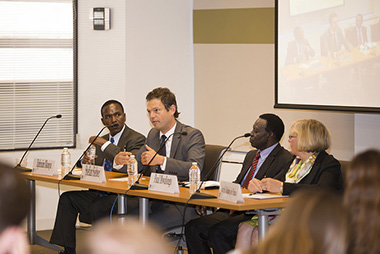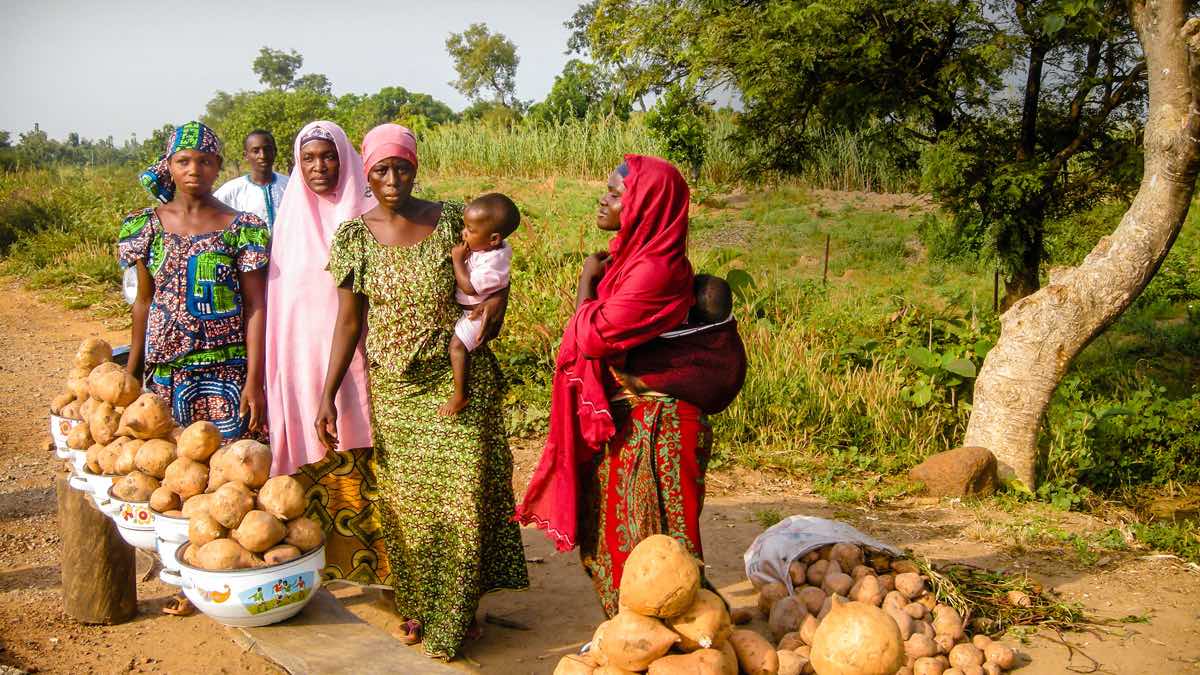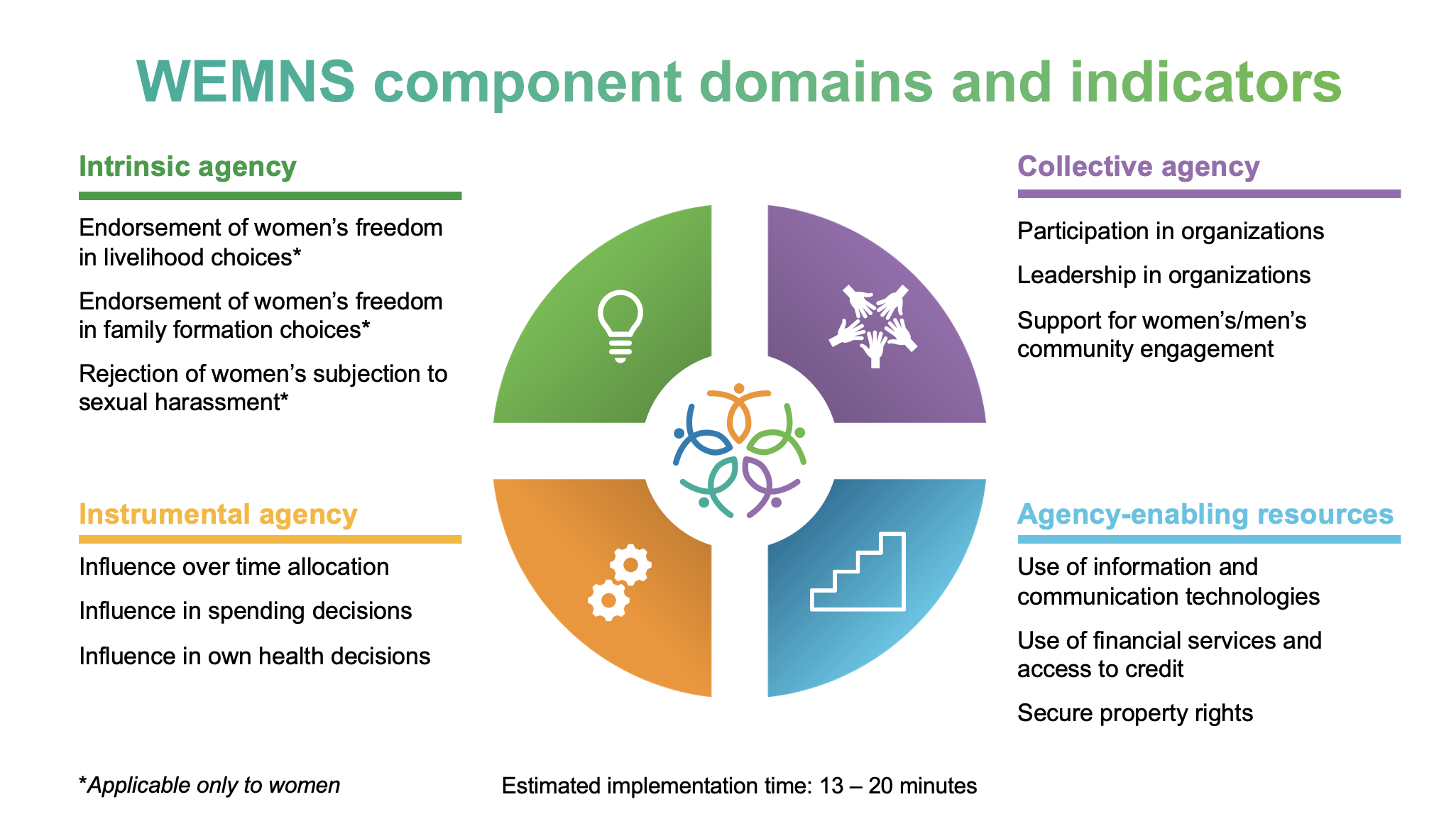How can we find cost-effective, holistic, people-centered solutions to improve food security in Africa south of the Sahara? Speakers at a recent policy seminar at IFPRI’s Washington DC office revealed an innovative project underway in Tanzania that is creating a model region to find the answer.
The seminar, Achieving Food Security in Africa South of the Sahara Through Food Value Chains, was the first of its kind: a joint initiative between IFPRI and the Embassy of the Federal Republic of Germany with the support and representation of the Embassy of Tanzania.
This innovative project, Trans-SEC, led by Leibniz Centre for Agricultural Landscape Research (ZALF) and a coalition of other partners including IFPRI, focuses on a small group of villages and relies upon a food value chain approach. The “farm to fork” strategy implements improvements to each step of the value chain, from food production to its final destination, the consumer. The aim is to create a model region that can be scaled up and replicated throughout the country and the continent.
Noting that the emphasis in food security has been disproportionately focused on the production phase, ZALF’s Stefan Sieber described the various improvements being tested at each stage in the value chain. He used the example of farmers in Tanzania growing sunflowers for palm oil production:
- At the production stage, there is ample opportunity for raising yields, particularly through increased farmer extension efforts aimed at promoting the adoption of improved seed varieties with higher oil content. Other production approaches being tested for potential scaling up include rainwater harvesting and improved fertilization and weed management practices.
- At the processing stage, farmer cooperatives are being leveraged for delivering trainings on crude oil pressing as well as for purchasing machinery.
- Building local and regional markets is another essential part of raising farmer incomes. Market-oriented storage and mobile-based price information systems that allow farmers to access real-time commodity price information and deliver their product to markets with high demand are two key technologies being tested in the project’s target zone.
- Finally, a focus on the last link of the chain–consumption—includes elements such as community nutrition education and dietary diversity through the promotion of kitchen gardens.
The project particularly looks at the potential for locally produced edible oil. One of Tanzania’s main imports is palm oil; if the country can substitute it with locally produced sunflower oil—which is possible according to IFPRI senior researcher Ephraim Nkonya—the income can stay in country and go to the local farmers.
Nkonya, a native Tanzanian, explained that his country’s oil processors are running at only 50 percent capacity, and importing from Argentina and Ukraine. “They are crying for more oil,” he said. He hopes his research can help the government answer if locally produced oil and make up this difference.
Sieber and Nkonya both emphasized the value of starting small. As Sieber explained, small-scale, experimental, and community-centered initiatives encourage trial and error; once a successful strategy is identified, the up-scaling potential increases because it is backed by community-determined evidence.







